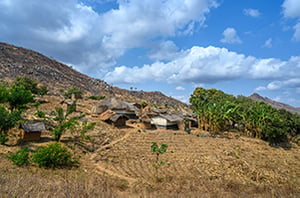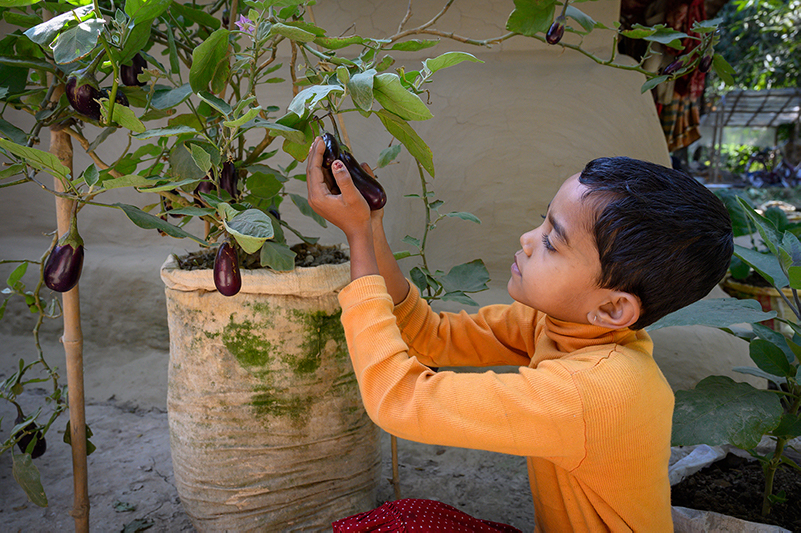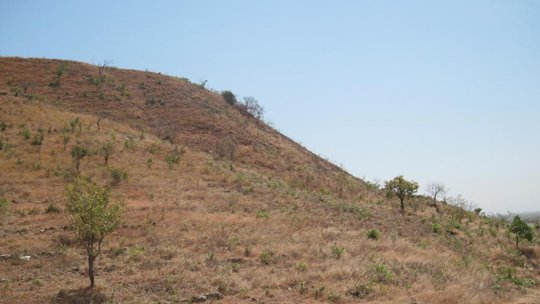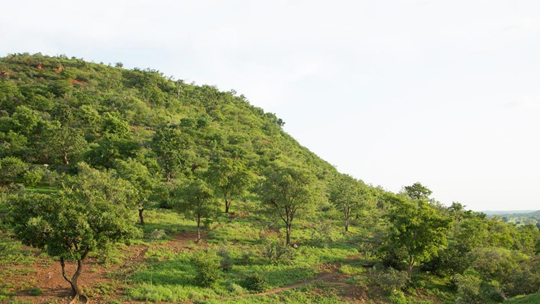 This Earth Day, we’re highlighting the importance of good environmental stewardship and the difference it makes for people living in poverty. For many of us in Western contexts, caring for the planet is a choice we can make when it works for our lifestyles. But, for people who struggle to earn a living on small farms in developing nations, environmental degradation isn’t an inconvenience they can ignore. Rather, environmental stewardship can mean life or death for them — it affects their crops, animals, homes, and livelihoods.
This Earth Day, we’re highlighting the importance of good environmental stewardship and the difference it makes for people living in poverty. For many of us in Western contexts, caring for the planet is a choice we can make when it works for our lifestyles. But, for people who struggle to earn a living on small farms in developing nations, environmental degradation isn’t an inconvenience they can ignore. Rather, environmental stewardship can mean life or death for them — it affects their crops, animals, homes, and livelihoods.
According to the World Bank, the poorest people on the planet — often smallholder farmers — depend the most on ecosystems functioning properly: for rain for their crops, bees to pollinate, and reliable temperature cycles. Yet these poor farmers often lack resources and knowledge to manage their on-farm and off-farm environments in ways that would lead to flourishing forests, rivers, and climates. And though smallholder farmers contribute minimally to global environmental problems, they bear the brunt of the negative impacts of the planet’s ecosystem degradation.
Without a global focus on ecosystem restoration, impoverished people’s chances of building improved and resilient livelihoods remain limited.
The roots of the problem
In many places, outdated farming practices degrade local ecosystems. For instance, burning crop stubble reduces soil fertility and often sterilizes it. When forests are cut down, the soil loses its grip on the land and quickly erodes. And when it rains, the ground can’t absorb the needed water. Farmers’ main productive assets — land and soil — literally blow away with the wind during droughts or wash away during floods. Add in the risks of landslides and the loss of local biodiversity and we see how critical it is for farmers’ wellbeing to steward their ecosystems. We cannot help smallholder farmers create improved and resilient livelihoods without empowering them to restore and manage their on-farm and off-farm ecosystems.

The earth is the Lord’s, and everything in it,
the world, and all who live in it;
for he founded it on the seas
and established it on the waters. —Psalm 24:1–2 (NIV)
Take Humbo, Ethiopia, where unrestrained cutting of trees had turned a lush forest into a bare wasteland. Without the protection of the trees and ground vegetation, the soil eroded, and runoff flooded low-lying areas. Fields were blanketed with silt and boulders. Agricultural production in the area fell by 70% in a matter of years. Trees no longer slowed rain down long enough to allow it to infiltrate the soil and descend into underground aquifers, threatening groundwater reserves for 65,000 people.
A simple, far-reaching solution
But when farmers take responsibility for restoring degraded lands, they can quickly see dry wells, small harvests, and empty cupboards turn into bubbling brooks, flourishing fields, and thriving homes where children have full stomachs.
Within months of World Vision teaching farmers in Humbo how to steward the land using an ancient tree management method, the results were clear: Grass for animals regrew quickly and springs began flowing again. Then soil erosion stopped, and soil fertility increased. Water levels in wells kept rising, the weather cooled, wildlife returned to the hills, and families doubled their crop yields or more.


Water will gush forth in the wilderness
and streams in the desert.
The burning sand will become a pool,
the thirsty ground bubbling springs.
In the haunts where jackals once lay,
grass and reeds and papyrus will grow. —Isaiah 35:6–7
Active ecosystem management is integral to many of our programs around the world, especially THRIVE (Transforming Household Resilience in Vulnerable Environments). To boost farmers’ success, especially as weather and rainfall patterns change, we teach people to manage their on-farm soil, vegetation, and water resources. Just like in Humbo, they and their neighbors learn to manage and rehabilitate the community’s trees and forests, watersheds, and grasslands. As of September 2020, over 8.6 million trees had been rehabilitated or planted by THRIVE farmers.
The most intact ecosystems are the most resilient — healthy and productive in the face of drought or flood, giving farmers a solid foundation on which to climb out of poverty.
An exciting new partnership on the horizon
As we continue to learn how interconnected our planet’s ecosystems are, being good environmental stewards anywhere is part of being faithful witnesses to God’s work everywhere in the world. The people Jesus calls “the least of these brothers and sisters of mine” in Matthew 25:40 are the very people who toil to eke out a living from farming. Loving them means we take care that our actions don’t unintentionally make their lives harder. With this lens, caring for the environment is a practical, profound way we can each care for people struggling to get out of poverty. As we all choose good environmental stewardship, the positive impacts for our brothers and sisters will multiply.
Plus, don’t miss World Environment Day on June 5, when we’ll announce a special new partnership that will scale up our current environmental successes — and give even more people the tools to break free from poverty for good.







